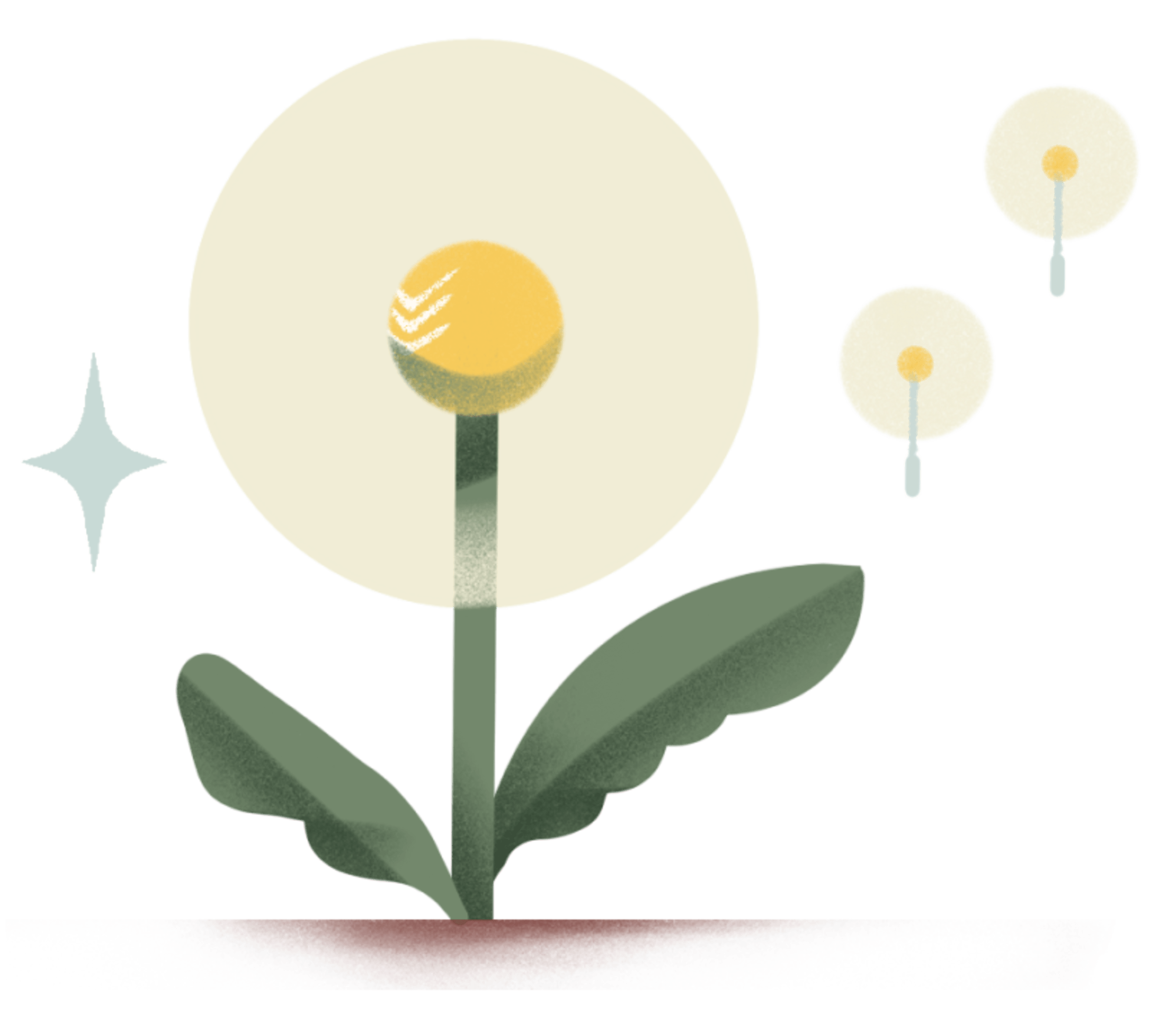Instead of trying to do everything at once, dedicate seasons of your life to one thing. — Nathan Barry
Think back to when you started high school. What were you interested in then? What did you spend most of your time doing?
Now think about when you left high school. What was your focus then? What did you think you'd spend your life doing?
Chances are, your interests today have diverged somewhat from what you spent most of your time doing in high school. And they'll probably change in the future. We pick up new hobbies, get introduced to new experiences, and let go of things we're not into anymore.
Research by psychologist Dan Gilbert has shown we don't realise how much we'll change in the future.
At every age, from 18 to 68 in our data set, people vastly underestimated how much change they would experience over the next 10 years.
This underestimation relates to personality traits and values as well as interests and hobbies. Gilbert isn't sure why this is, but his theory is that it comes from the difference in difficulty between remembering and imagining. When participants were asked to think about themselves 10 years ago, they could easily remember their interests and personality traits. This helped them accurately portray how much they'd changed in the past decade.
But when asked to imagine how they might be different 10 years into the future, most people tend to think they'll be pretty much the same as they are now. Gilbert thinks this is because "we mistakenly think that because it's hard to imagine, it's not likely to happen".
The person you are right now is as transient, as fleeting and as temporary as all the people you've ever been. The one constant in our life is change.
Because we change over time and our focus moves onto different things, it can be difficult to commit to something for life. Whether it's a career or a hobby, taking up a new interest can sometimes feel like being shackled—even if it's something you enjoy, are you really willing to be stuck with it, and nothing else, forever?
A few people have found a common idea for how to deal with this problem: working in seasons. Rather than committing forever, simply commit to something for a season—an arbitrary length of time, determined by you, where your focus remains constant.
Seasons allow full commitment while leaving open the opportunity for different seasons in the future.
Try new hobbies or habits for a season

Nathan Barry, founder of email marketing platform ConvertKit, was struggling with producing high quality content consistently. While working on a book, Barry aimed to write 1,000 words every day. And he did—for 650 days in a row. When he broke the chain and started again, he got up to 70 days in a row before he missed another day.
At that point, Barry realized he didn't want to continue writing 1,000 words every day. The habit had served its purpose in helping him write his book, but it was no longer relevant to his main focus. Writing 1,000 words every day for the sake of it was making him feel stressed:
I felt stuck. The longer I made my chain, the more pressure I put on myself not to break it. That’s the idea right? And it worked. But I needed to break the chain eventually. And the mounting pressure not to break the chain was causing stress.
The same thing happened when Barry started a weekly podcast. Just 10 episodes in, he started to feel stuck. Barry felt his episode quality was low because he was rushing to meet his deadline every week, and the pressure was mounting.
To deal with these ongoing pressures, Barry suggests using the idea of seasons. Many podcasts are created in seasons, and Barry wondered if his would have turned out better if he "had set out to produce 10 really high quality episodes on a specific topic, and then stopped."
Seasons, Barry suggests, allow you to commit to what you're working on without reaching a point of burnout.
A 10 episode podcast season that you can truly craft into something meaningful. A 90 day season focused on writing and launching your book. A 5 year season dedicated to building a software company.
Barry doesn't regret the time he spent writing 1,000 words a day. In fact, he says it not only helped him write a book, but he learned a lot from the process. Not to mention the accomplishment of doing something every day for 650 days in a row!
But admitting when you're ready to move on allows you the freedom to commit fully to different hobbies or habits at different times.
So commit to your goal with everything you have—for a season.
Find your calling with seasons
The hardest part of realizing a dream, or finding a calling, is naming it. And it should be. This is your life’s work we’re talking about. But this line of thinking, of questioning yourself and wondering what your dream is, can paralyze you. You can get stuck doing nothing.
Jeff Goins knows it's hard to find your calling. After all, choosing one thing to focus your time and energy on means saying no to a lot of other options. How can you be sure you're doing the right thing? How can you know something is your calling until you've tried it?
Goins also suggests working in seasons:
So I propose an alternative, something in between doing nothing and picking the wrong dream: Make a seasonal commitment.
Not unlike Nathan Barry's approach, Goins says working in seasons allows you to commit fully, without worrying that you've committed forever.
Guess at something that strikes your fancy, based on the possibility that it could be your dream. In other words, experiment. Not in a flaky, non-committal way. Pick something, and commit to it for a season. Call it a seasonal dream, if you want. This will give you experience, broaden your skill set, and teach you the value of commitment.
This, Goins says, is the best way to test out different dreams until you find the one you want to stick with.
Build new skills with seasons

Sean McCabe has gone through different seasons of work. He started with computer repair, before starting a web design company. From there, he went on to a season as a hand lettering artist, and has recently moved into a new season, educating others in making a living doing what they love.
McCabe knows the pressure of saying no to other options so you can focus on one thing. But he also knows focus can make or break a career. As a designer, McCabe struggled to get recognition for his work until he focused solely on hand lettering. This single-minded focus helped him grow an audience, improve his work, and charge higher rates from bigger clients.
Remember that the things that you’re not pursuing in this season aren’t going away forever.
But knowing how hard it is to choose a single focus, McCabe suggests working in seasons. When he was running his web design company, McCabe spent hours every night on hand lettering. His day job paid the bills so he had the freedom to explore whether hand lettering was something he enjoyed enough to focus on it for a season.
When his lettering income grew enough to pay the bills, McCabe transitioned into a season of hand lettering focus which lasted several years.
A season can be as long as you want. It may only be a few months, until you decide that skill isn't something you want to continue working on. Or it may be long enough to develop a new skill until it becomes your main income driver.
Stop worrying about which passion is the right one, just pick one. Start doing one of them. If it’s a short season, it’s a short season. If it’s a long one, it’s a long one. Just embrace that. You’re going to get to the next thing before you know it.
Working in seasons, according to McCabe, lets you overcome the common problem of loving an idea of something, rather than the act of doing it. If you give yourself a season to explore a new skill, you'll be able to test whether the daily pursuit of improving that skill is a joy or a pain, without the pressure of continuing with it forever.
McCabe also suggests thinking of tough periods of skill development or work as seasons:
You may be in a season you don’t enjoy, but you have no idea how the things you’re learning right now will serve what you do in the future.
Working on a skill, or in a job you're working to move on from, can provide opportunities and experience that may help in future seasons. Always be open to the idea that you're learning, even when you're looking forward to the end of your current season.
If you're struggling to find your purpose, or you're stuck with too many options and can't choose one to focus on, try working in seasons. A seasonal commitment has lower stakes than a lifelong pursuit. It gives you time to experience a skill, hobby, or job with full focus. And it gives you the freedom to decide when that season is over and you're ready to try something new.

